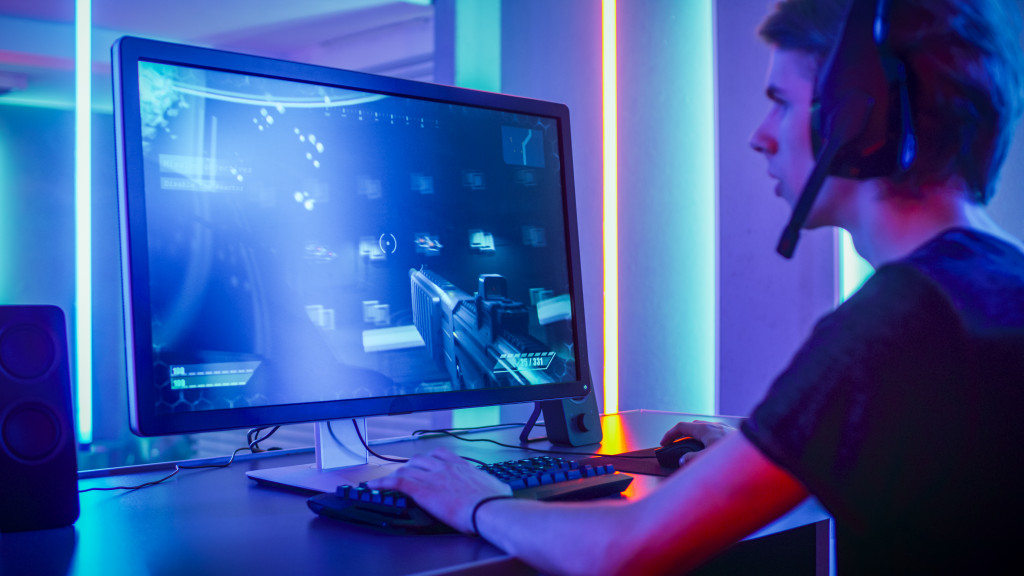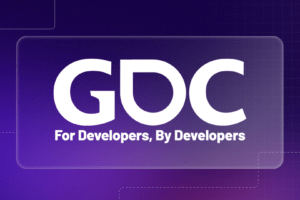Video games aren’t just about pixelated landscapes and button-mashing combat. They’re intricate tapestries woven with sights, sounds, and emotions, and at the heart of this immersive tapestry lies the powerful duo of sound and music. Let’s dive into how these two elements work their magic, transporting players into fantastical realms and igniting the flames of imagination.
The Art of Soundscapes
Imagine the hushed rustle of leaves in a windswept forest, the clinking of armor as warriors prepare for battle, or the chilling gurgle of an unseen creature lurking in the depths. These are more than just background noise; they’re meticulously crafted soundscapes that paint vivid pictures in our minds, deepening our connection to the virtual world.
The careful placement of footsteps, the subtle creak of a door opening, or the distant rumble of thunder – these aural details add layers of realism and texture, blurring the lines between the digital and the tangible. Environmental sounds set the scene, establish mood, and anchor players in the game world.

Music: The Emotional Engine
Where sound sets the scene, music fuels the emotions. A soaring orchestral score can elevate a triumphant victory, while a haunting melody can weave a web of suspense and anticipation. Music has the uncanny ability to tap into our primal emotions, heightening our connection to the characters and their struggles.
A well-composed soundtrack can make us feel the thrill of the chase, the weight of loss, or the surge of hope in the face of overwhelming odds. Dynamic music that shifts based on gameplay events further interweaves audio and interactivity, drawing players deeper into each moment.
Beyond Atmosphere: Functional Audio
Sound and music aren’t just aesthetic enhancements; they’re gameplay tools as well. Environmental sounds can provide crucial clues, alerting players to danger or guiding them towards hidden secrets. Music can dynamically shift to reflect the intensity of a battle, or subtly nudge players towards specific actions.
This intricate interplay between audio and gameplay creates a seamless, responsive experience, further immersing players in each moment. The fusion of form and function allows sound to transcend mere sensory backdrop and directly participate in the game mechanics themselves.
Masterful Manipulation: The Art of Audio Design
Crafting soundscapes and music for games is an art form in itself. Audio designers carefully choose each sound effect and note, considering its emotional impact, its place in the environment, and its contribution to the overall narrative.
They understand the power of silence, of building tension through subtle cues, and of unleashing a thunderous roar at the peak of a boss battle. An arsenal of audio tools allows them to score a player’s adventure, reacting dynamically to each choice and encounter.
The Magic of Immersion
Ultimately, the success of sound and music in video games lies in their ability to transport us. They blur the lines between reality and virtuality, making us feel as though we are truly inhabiting the digital world.
When a perfectly placed sound effect sends shivers down our spine, or a soaring orchestral piece brings tears to our eyes, we’ve entered a realm where pixels and polygons seamlessly meld with emotions and memories.
Beyond the Screen: Game Soundtracks
The impact of video game sound and music extends far beyond the screen. These carefully crafted soundtracks can become standalone artistic achievements, enjoyed long after the credits roll. Iconic compositions embed themselves into popular culture, coming to epitomize entire game franchises.
Game soundtracks also inspire dedicated fan communities that analyze each layered melody and remix their favorite tracks. Some composers have even debuted game soundtracks through live orchestral concerts, showcasing the emotional breadth of interactive scores.
A Symphony of Possibilities: The Future of Game Audio
As technology evolves and game experiences become ever more immersive, the role of sound and music will only become more crucial. We can expect even more nuanced 3D soundscapes, dynamic soundtracks powered by artificial intelligence, and cutting-edge audio hardware innovations.
Spatial audio, personalized procedural music engines, tactile feedback devices integrated with game events — these emerging tools hint at a future where we don’t just hear or listen to games, but feel them resonate through our very bones.
The symphony of pixels is ready for its next movement, and with it we march onwards into ever more fantastical realms of immersive play.
















Add Comment